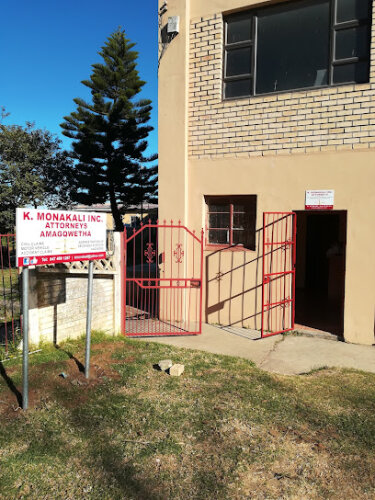Best Toxic Mold Lawyers in South Africa
Share your needs with us, get contacted by law firms.
Free. Takes 2 min.
Or refine your search by selecting a city:
List of the best lawyers in South Africa
About Toxic Mold Law in South Africa
Toxic mold, also known as black mold, can pose serious health risks to individuals who are exposed to it. In South Africa, there are laws and regulations in place to protect individuals from the harmful effects of toxic mold. If you suspect that you have toxic mold in your home or workplace, it is important to seek legal advice to understand your rights and options.
Why You May Need a Lawyer
You may need a lawyer if you are dealing with a landlord or property owner who is not addressing toxic mold issues in your living or working environment. A lawyer can help you navigate the legal process to ensure that your health and rights are protected. Additionally, if you have suffered health problems as a result of exposure to toxic mold, a lawyer can help you seek compensation for medical expenses and other damages.
Local Laws Overview
In South Africa, the Rental Housing Act of 1999 sets out the rights and responsibilities of tenants and landlords in relation to mold and other environmental hazards. The Occupational Health and Safety Act also provides guidelines for employers to ensure a safe working environment free from toxic mold. It is important to consult with a lawyer who is familiar with these laws to understand how they apply to your specific situation.
Frequently Asked Questions
1. Is toxic mold common in South Africa?
Yes, toxic mold is common in South Africa, especially in areas with high humidity levels.
2. How can I tell if I have toxic mold in my home or workplace?
If you notice a musty odor, visible mold growth, or experience symptoms such as coughing, sneezing, or skin rashes, you may have toxic mold.
3. What should I do if I suspect toxic mold in my living or working environment?
You should notify your landlord or employer immediately and seek legal advice to protect your rights.
4. Can I sue my landlord or employer for mold exposure?
Yes, you may be able to sue your landlord or employer for failing to address toxic mold issues that have affected your health.
5. What kind of damages can I seek in a toxic mold lawsuit?
You may be able to seek compensation for medical expenses, lost wages, pain and suffering, and property damage.
6. Is there a statute of limitations for filing a toxic mold lawsuit in South Africa?
Yes, there is a limited time frame within which you must file a lawsuit for toxic mold exposure. It is important to consult with a lawyer to understand your rights.
7. Can I be evicted from my rental property for reporting mold issues?
No, landlords are prohibited from retaliating against tenants who report mold issues or other health hazards.
8. How can I prevent toxic mold from growing in my home or workplace?
Keep indoor spaces well ventilated, fix leaks and moisture issues promptly, and clean and dry any wet surfaces or materials to prevent mold growth.
9. Are there government agencies that regulate toxic mold in South Africa?
The Department of Health and the Department of Labour are responsible for regulating toxic mold and other environmental hazards in South Africa.
10. How can a lawyer help me with a toxic mold case?
A lawyer can help you understand your rights, gather evidence to support your case, negotiate with landlords or employers, and represent you in court if necessary.
Additional Resources
For more information on toxic mold laws and regulations in South Africa, you can contact the Department of Health or the Department of Labour. Additionally, organizations such as the South African Medical Research Council and the National Institute for Occupational Health may provide helpful resources and guidance.
Next Steps
If you suspect that you have been exposed to toxic mold and require legal assistance, it is important to consult with a lawyer who specializes in environmental law or toxic torts. They can help you understand your rights, assess your case, and take appropriate legal action to protect your health and well-being.
Lawzana helps you find the best lawyers and law firms in South Africa through a curated and pre-screened list of qualified legal professionals. Our platform offers rankings and detailed profiles of attorneys and law firms, allowing you to compare based on practice areas, including Toxic Mold, experience, and client feedback.
Each profile includes a description of the firm's areas of practice, client reviews, team members and partners, year of establishment, spoken languages, office locations, contact information, social media presence, and any published articles or resources. Most firms on our platform speak English and are experienced in both local and international legal matters.
Get a quote from top-rated law firms in South Africa — quickly, securely, and without unnecessary hassle.
Disclaimer:
The information provided on this page is for general informational purposes only and does not constitute legal advice. While we strive to ensure the accuracy and relevance of the content, legal information may change over time, and interpretations of the law can vary. You should always consult with a qualified legal professional for advice specific to your situation.
We disclaim all liability for actions taken or not taken based on the content of this page. If you believe any information is incorrect or outdated, please contact us, and we will review and update it where appropriate.
Browse toxic mold law firms by city in South Africa
Refine your search by selecting a city.













